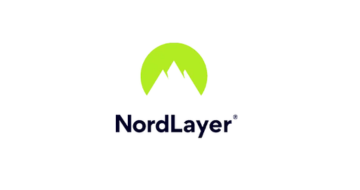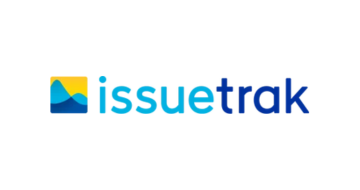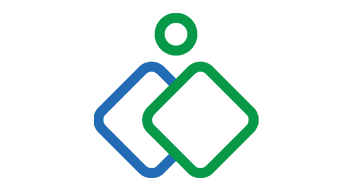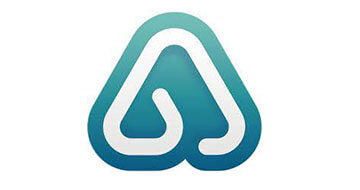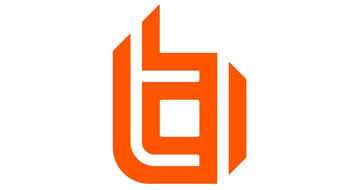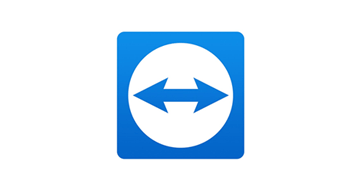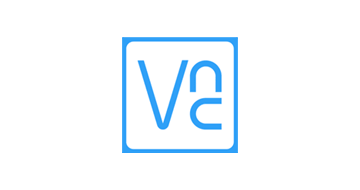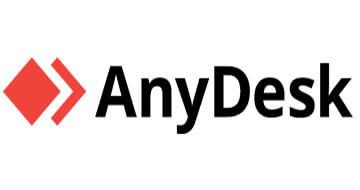What Is Remote Support Software?
Remote support software is a customer service tool that reduces your costs, increases productivity, and enhances user satisfaction.
IT technicians will be able to remotely access other computers and provide instant support to that user. The screen of the user will be visible to the technician in real-time. The technician will be able to troubleshoot problems and set up other tasks for the user on-screen.
This support is fast, and so the user experiences improved satisfaction. Productivity of the user increases as their system returns to running efficiently.
Furthermore, costs will remain low as there is no need for a technician to perform a call-out. Support can be completed through the software without any additional costs.
Top Remote Support Software Solutions for 2025
Enterprise-Grade Solutions
| Software | Best For | Starting Price | Key Features |
|---|---|---|---|
| TeamViewer | Global remote support | Free (personal) / Commercial license required | Cross-platform support, multi-monitor display, session recording |
| BeyondTrust Remote Support | Enterprise security | Contact for pricing | Zero trust architecture, audit logging, privileged access management |
| ConnectWise ScreenConnect | MSPs and IT teams | $19/month per technician | Unattended access, mobile support, integration capabilities |
| Splashtop Remote Support | Fast performance | $17/month per technician | Low latency streaming, file transfer, session recording |
Budget-Friendly Options
| Software | Best For | Starting Price | Key Features |
|---|---|---|---|
| AnyDesk | Small businesses | $10.90/month | DeskRT codec, lightweight client, mobile device support |
| Chrome Remote Desktop | Basic remote access | Free | Browser-based, Google account integration, simple setup |
| RemotePC | Cost-effective solution | $22.12/year | File management, remote printing, collaboration tools |
| Zoho Assist | Integrated business solutions | $10/month per technician | Unattended access, mobile support, CRM integration |
How Can Remote Support Software Help My Business?
A remote support solution is a useful tool for all businesses. You can solve IT problems remotely, allowing the technician to see the user’s screen immediately.
Remote support can be provided on demand or when the end-user is not present. Annotation is available in addition to screen recording if the technician wants to explain the troubleshooting solution to the user.
In what other ways can remote support software help your business? Here are the main advantages you can experience when using a remote support solution in your business:
- Session schedules,
- Real-time chat,
- Remote reboot,
- Transfer files,
- Session recording,
- Screen swap,
- Annotation,
- Inactive timeout,
- Two-factor authentication,
- Manage users,
- Analysis reports.
Advanced Remote Support Features for 2025
AI-Powered Automation
Modern remote pc support solutions are increasingly embedding AI capabilities to automate routine tasks such as diagnosing issues, restarting systems, or applying patches. This automation significantly reduces response times and improves support accuracy.
Key AI features include:
- Predictive diagnostics that identify potential issues before they impact users
- Automated ticket categorization based on keywords and problem patterns
- Smart resolution suggestions powered by historical data
- Proactive monitoring that prevents system failures
Enhanced Security Measures
Security remains paramount in remote support, with secure remote support sessions becoming a standard requirement. Modern solutions implement:
- Zero-trust architecture for enhanced security protocols
- Multi-factor authentication for all remote sessions
- End-to-end encryption protecting data transmission
- Session audit logs for compliance and monitoring
- Granular permission controls limiting technician access
Cross-Platform Mobile Support
Remote printer support, AI and chatbots, and diagnostic intelligence are emerging as critical features. Mobile device support has become essential, with technicians needing to assist users across:
- iOS and Android devices with native mobile apps
- Tablet support for field technicians
- Smart device integration, including IoT equipment
- Augmented reality (AR) support for visual assistance
What Are the Features of Remote Support Software?
Remote support solutions reduce the cost and inconvenience of sending technicians to physically fix an IT problem.
The software also enables a quicker solution to be sought when compared to the user following verbal instructions. What other features of remote support software can you expect?
Here are the top 5 features of remote support software:
- Support: Work remotely to support users and troubleshoot problems.
- Communicate: Chat in real-time with users, or use video calls.
- Diagnostics: Use diagnostic tools to manage computers and regulate scheduled diagnostics across the system.
- Recordings: Record sessions when the end-user is not available.
- Integration: Embed software and use remote support software on iOS apps or Android.
Emerging Trends in Remote Support Technology
24/7 Global Support Infrastructure
With global workforces spread across time zones, the demand for 24/7 remote it support outsourcing continues to surge. Organizations are implementing follow-the-sun support models to ensure continuous assistance.
Augmented Reality Integration
Augmented reality (AR) and artificial intelligence (AI) are increasingly being integrated into remote support tools for more effective troubleshooting. AR enables technicians to:
- Provide visual overlays on real-world equipment
- Guide users through complex procedures step-by-step
- Access device manuals and documentation in real-time
- Collaborate with field technicians using shared visual references
Cloud-Based Architecture
The cloud-based segment is expected to grow at a faster pace, driven by the adoption of cloud computing and SaaS business models. Benefits include:
- Rapid deployment without infrastructure requirements
- Automatic updates ensuring latest security patches
- Scalable pricing based on actual usage
- Global accessibility from any internet connection
How We Rank the Best Remote Support Software
We use a comprehensive rating methodology to ensure unbiased ratings. Our criteria include factors such as performance, security, ease of use, and customer reviews. Our internal testing team combines these factors to assign the Genius Score, a unique rating system that ranges from 0 to 100. For a deeper understanding of our methodology, visit our full assessment.
What Are the Benefits of Remote Support Software Tools?
Remote support software complements any remote working or remote service in your company. IT technicians can arrange sessions with users and access their screens. Problems can be resolved quickly and easily using this support tool.
Here are the predominant advantages of using remote support software in your company.
Support Remotely
Create instant support for your users, from any remote location. You can set up remote sessions to liaise with a user or access a user’s computer when they are not online.
Remote support software has revolutionized IT support globally, providing quicker resolution and lower costs for all.
Access Screens
When troubleshooting a problem, you can access the screen of your user to see exactly what the user is seeing. Gain firsthand experience of the IT problem to acquire a faster solution.
This feature is much more beneficial than liaising over the phone with a user, as you can see what is going on. Less time is spent fixing the problem, and the user can get back on track sooner.
Host Sessions
Schedule sessions remotely with the remote support software and provide conveniently organized support for your users.
You can record these sessions to provide a record of problems solved, and utilize time zones so sessions work for you.
Secure Settings
Security features are paramount for any software, keeping your data protected. Remote support software provides two-factor authentication to protect your account, offering a protected web-based solution.
Encrypted communications and a standard firewall configuration make remote support software a necessary solution for your company.
Customization
Customize your software to match your company’s brand and requirements. You can utilize email templates and integrate your brand into the software.
Analyze support sessions and create custom reports, managing roles and organizing technician duties.
Choosing the Right Remote Support Solution
Assessment Criteria for 2025
When selecting remote support software, consider these critical factors:
Performance Requirements:
- Connection speed and reliability
- Multi-monitor support capabilities
- File transfer speeds and size limits
- Session recording quality and storage
Security Standards:
- Compliance with GDPR, SOC 2, and industry regulations
- Encryption protocols (AES-256 minimum)
- Authentication methods (SSO, MFA support)
- Audit trail capabilities
Integration Capabilities:
- Compatibility with existing IT management software
- API availability for custom integrations
- Ticketing system connections
- CRM and documentation platform support
Scalability Options:
- Per-technician vs. concurrent session pricing
- Volume discounts for enterprise deployments
- White-label and customization options
- Multi-tenant support for MSPs
Who Should Use Remote Support Software?
Remote support software is perfect for any company that uses remote working of any variety. Whether your employees or customers require remote support, this software is your easy solution to link a user with an IT technician.
Small Business Applications
A small business should purchase remote support software to ensure its company practices run smoothly as it aims to develop and grow the business. Small businesses benefit from:
- Reduced IT overhead costs by eliminating on-site visits,
- Faster issue resolution improving employee productivity,
- Professional support experience enhancing customer satisfaction,
- Scalable solutions that grow with business needs.
Medium Business Requirements
A medium business will benefit from a remote support solution due to the vast number of users in their organization. Time and money will be saved using remote support from a technician as opposed to physical call-outs.
Medium businesses should prioritize:
- Multi-technician support for handling concurrent sessions
- Advanced reporting for IT performance tracking
- Integration with service management software
- Role-based access controls for security compliance
Large Enterprise Needs
Large enterprises should buy remote support software to enhance their global network of employees working across different continents and time zones.
Enterprise requirements include:
- Global deployment with regional data centers
- Advanced security features including zero-trust architecture
- Comprehensive audit trails for compliance reporting
- API integration with existing IT asset management systems
Integration with Business Systems
IT Service Management Integration
Modern remote support software integrates seamlessly with ITSM platforms, creating unified workflows that enhance service delivery. Key integration benefits include:
- Automated ticket creation from remote sessions
- Knowledge base integration for faster problem resolution
- SLA tracking and performance monitoring
- Customer communication through preferred channels
Project Management Connectivity
Remote support tools now integrate with project management software to streamline IT operations:
- Task automation for routine maintenance
- Resource allocation based on support demand
- Timeline tracking for system deployments
- Team collaboration across IT departments
Industry-Specific Remote Support Applications
Healthcare IT Support
Healthcare organizations require specialized remote support solutions that comply with HIPAA regulations while maintaining system uptime for critical patient care systems.
Healthcare-specific features:
- HIPAA-compliant session recording and data handling
- Medical device support for specialized equipment
- 24/7 availability for emergency system issues
- Integration with electronic health records systems
Financial Services Support
Financial institutions need remote support solutions that meet strict regulatory requirements while providing secure access to sensitive systems.
Financial industry requirements:
- SOX compliance for audit trail requirements
- Multi-factor authentication for all remote sessions
- Data loss prevention measures
- Integration with compliance monitoring systems
Educational Technology Support
Schools and universities require cost-effective remote support solutions that can handle diverse device types and user skill levels.
Educational sector benefits:
- Student device support across multiple platforms
- Faculty assistance for classroom technology
- Budget-friendly pricing for educational institutions
- Parental consent management for minor students
How Much Does Remote Support Software Cost?
The cost of remote support software varies although it will fall between $8 and $60 per month. Additional storage can be added to plans.
2025 Pricing Ranges:
Basic Plans: $8 – $25 per month for smaller businesses
- Limited concurrent sessions (1-5)
- Basic screen sharing and file transfer
- Standard support during business hours
- Limited integration options
Professional Plans: $25 – $40 per month for medium businesses
- Unlimited concurrent sessions
- Advanced features (session recording, annotation)
- Priority support with extended hours
- API access and integrations
Enterprise Plans: $60+ for bespoke enterprises
- White-label customization options
- Advanced security features
- Dedicated account management
- Custom SLA agreements
Cost-Benefit Analysis Framework
When evaluating remote support software costs, consider the total cost of ownership:
Direct Costs:
- Software licensing fees
- Implementation and training costs
- Ongoing support and maintenance
- Integration development expenses
Cost Savings:
- Reduced travel expenses for on-site support
- Faster problem resolution reducing downtime
- Improved technician productivity
- Enhanced customer satisfaction and retention
Implementation Best Practices
Deployment Strategy
Successful remote support software implementation requires careful planning and execution:
Phase 1: Assessment and Planning
- Audit current support processes and pain points
- Define success metrics and KPIs
- Select pilot user groups for initial testing
- Develop training materials and documentation
Phase 2: Technical Setup
- Configure security settings and access controls
- Integrate with existing IT systems and workflows
- Test all features and functionality thoroughly
- Establish monitoring and alerting systems
Phase 3: User Adoption
- Provide comprehensive training for all technicians
- Create user guides and quick reference materials
- Monitor usage patterns and gather feedback
- Iterate and improve processes based on results
Change Management Considerations
Adopting new remote support software requires effective change management:
- Communication strategy explaining benefits to all stakeholders
- Training programs tailored to different user skill levels
- Feedback mechanisms for continuous improvement
- Success celebration to maintain momentum
Future of Remote Support Technology
Emerging Technologies
The remote support industry continues to evolve with emerging technologies:
Artificial Intelligence Integration:
- Predictive analytics for proactive issue prevention
- Natural language processing for automated documentation
- Machine learning for intelligent problem categorization
- Chatbot integration for initial user triage
Internet of Things (IoT) Support:
- Smart device monitoring and management
- Sensor data integration for predictive maintenance
- Edge computing support for real-time analysis
- Industrial IoT equipment remote diagnostics
Market Predictions for 2025-2027
Industry experts predict significant changes in the remote support landscape:
- Increased AI adoption in 80% of enterprise solutions
- Enhanced mobile support capabilities across all platforms
- Improved integration with business process automation tools
- Greater emphasis on sustainability through reduced travel requirements
With a vast array of remote support software available on the market, which solution is perfect for you?
Remote support software offers a range of free demos and free trials so take advantage of these amazing benefits. You are under no obligation to purchase any of these software solutions so try plenty of variety.
Our best remote support software list provides you with an insight into the range of top-ranked solutions available.
